10-11 June 2019. While undernutrition persists, we are witnessing an unprecedented rise in obesity and diet-related non-communicable diseases, including in low- and middle-income countries. What is wrong with our food systems? How will we feed a growing and urbanizing world population with natural resources that are limited and are being depleted?
FAO convened a 2-day symposium on The Future of Food, brought together academics, researchers, policymakers, representatives from civil society and private sector, parliamentarians and government agencies to discuss these questions (and many more) and to explore pathways to a sustainable future of food and healthy diets for all.
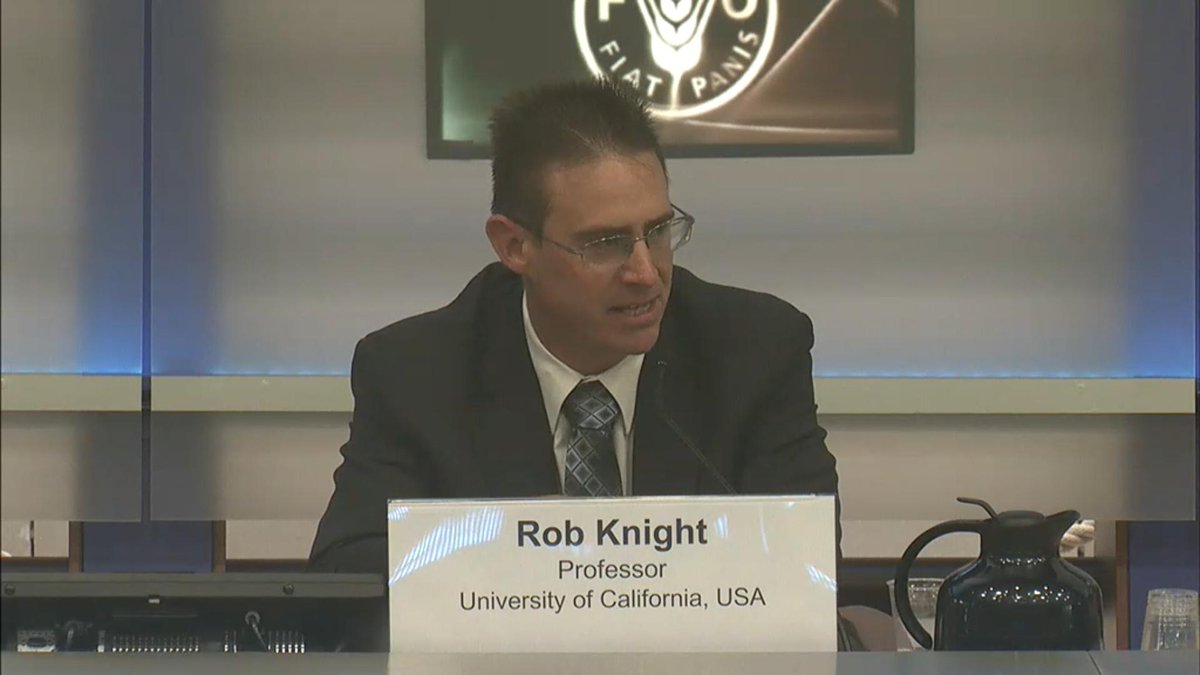 Extracts of the programme:
Extracts of the programme:
10 June 2019
Seminar on Microbiome discoveries
Panel 1: Research, Knowledge Gaps and Needs for Sustainable Foood Systems and Healthy Diets
Panel 2: Governance of food systems
FAO convened a 2-day symposium on The Future of Food, brought together academics, researchers, policymakers, representatives from civil society and private sector, parliamentarians and government agencies to discuss these questions (and many more) and to explore pathways to a sustainable future of food and healthy diets for all.
 Extracts of the programme:
Extracts of the programme:10 June 2019
Seminar on Microbiome discoveries
- A fascinating seminar presented by Rob Knight (see picture), Professor of Pediatrics, Bioengineering, Computer Science and Engineering, University of California, San Diego, (USA)
"We need to preserve the microbiome diversity similar to what Crop Trust with seed banks to preserve the bio diversity"
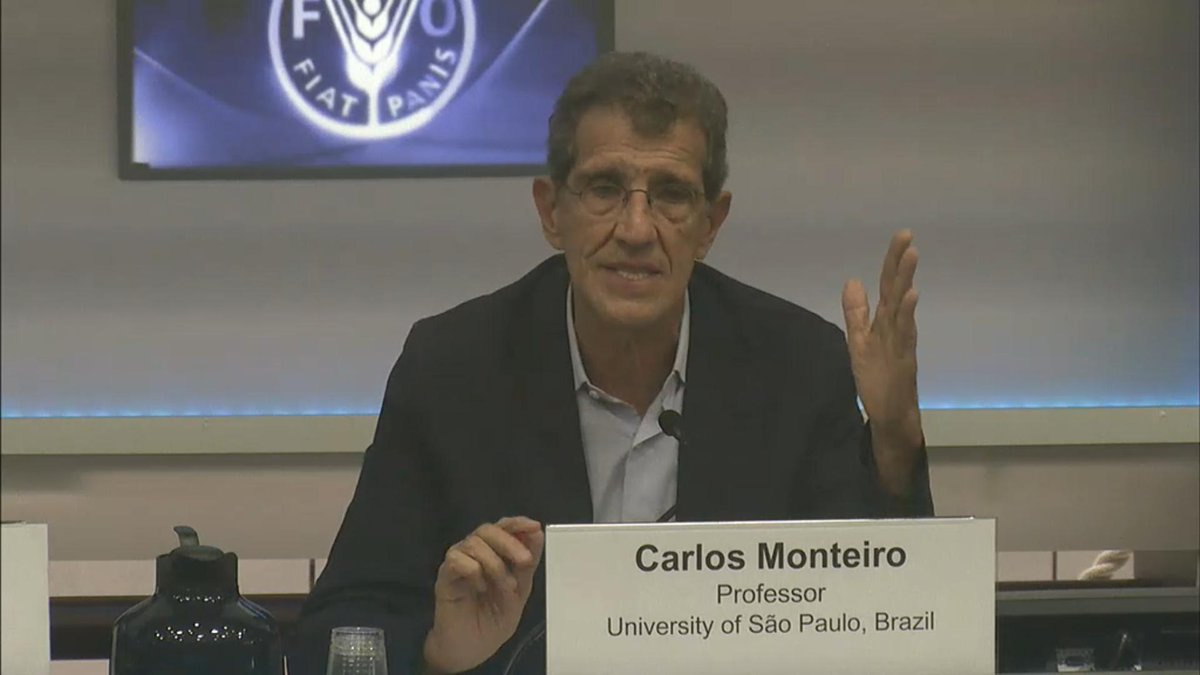 |
| "There's a causal relationship of ultra-processed foods on weight and NCDs. We have to discuss about under researched areas with potential impact for low and middle income countries". |
Large data gaps persist regarding exactly what people eat and drink. Therefore, improving the quality and quantity of data on food intake among different categories of the population is a priority.
- Keynote: Corinna Hawkes, Director of the Centre for Food Policy, City, University of London
- Marcela Villarreal, Director, Partnerships Division, FAO
- Rob Knight, Professor of Pediatrics, Bioengineering, Computer Science and Engineering, University of California, San Diego, USA
- Carlos Monteiro (see picture), Professor of Nutrition and Public Health, University of São Paulo
- Sara Roversi, Founder, Future of Food Institute
- Grace Marquis, Associate Professor, School of Human Nutrition, McGill University, Canada
 |
| Chilean Senator @guidogirardi "NCDs is the wrong term because these diseases are definitely transmitted through the food companies, advertising. It is a violation of child rights. We shouldn’t call these things food." |
Panel 2: Governance of food systems
This session will examine mechanisms that already exist or can be put in place to ensure that
governments, private sector and civil society hold themselves accountable for the quality and
effectiveness of food system policy, action and investment including the measurement of their
impact.
- Keynote: Senator Guido Girardi, author of the Chilean Nutritional Labelling and Advertising Law, Senate of the Republic of Chile
- Patrick Mink, Co-Chair of the Multistakeholder Advisory Committee of the One Planet (10YFP) Sustainable Food Systems Programme, Switzerland
- Mariam Harib Sultan Al Yousuf, Executive Director of the Abu Dhabi Food Control Authority
- Rickard Bjerselius, Head of Team Risk-Benefit Management And Environment, Swedish National Food Agency
- Visith Chavasit, Professor, Institute of Nutrition, Mahidol University, Thailand
- Stefano Prato, Managing Director and Editor, Society for International Development
 |
| Marion Nestle:“Restricting commercial influences on food policy would have a triple duty action on obesity, undernutrition and climate change” |
The growing gap between the point of production and consumption has led to a decline in
consumer
trust in food and a desire for increased regulation. As people lose the connection
with farmers, they lose the valuable relationships that offer a connection to their food. This session will explore how to build consumer confidence in food systems.
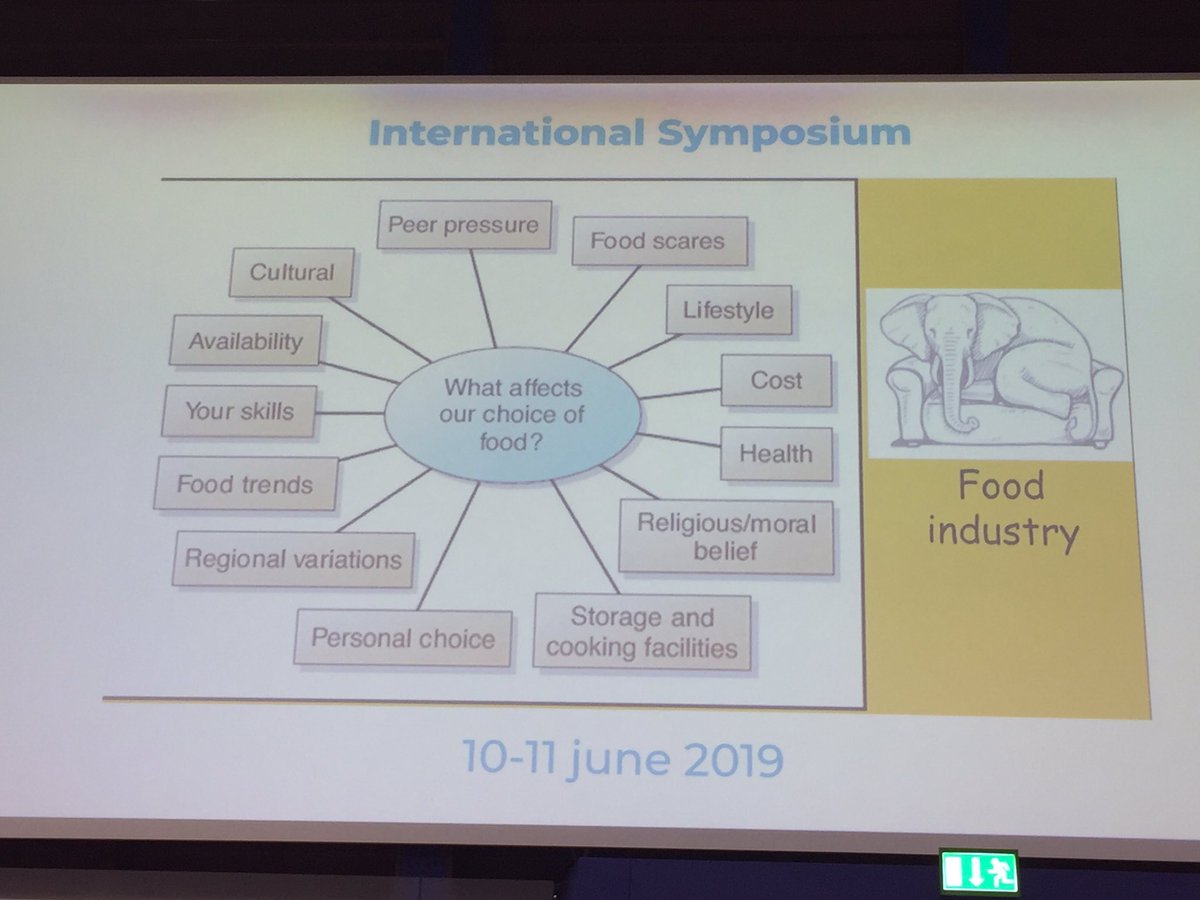 |
| Marion Nestle: "Elephant in the room is the food industry’s influence on food choice. It’s invisible!" |
- Keynote: Marion Nestle, Paulette Goddard Professor of Nutrition, Food Studies, and Public Health at New York University and author of “Food Politics”
- Tim Lobstein, Director of Policy, World Obesity Federation
- Simona Castaldi, Research Project Manager, Barilla Center for Food and Nutrition
- Amos Laar, Senior Lecturer, University of Ghana
- Justin Macmullan, Advocacy Director, Management Team Member, Consumers International
- Sharada Keats, Senior Associate, Policy and Advocacy, Global Alliance for Improved Nutrition
In the quest for healthy diets, the Mediterranean Diet represents a dietary pattern to learn
from in terms of sustainable production and consumption. This session’s discussions will
revolve around how to preserve the principles of the Mediterranean Diet as an intangible
food systems heritage, and how to ensure this heritage is preserved by current and future
generations.
- Keynote: Farah Naja, Associate Professor, Department of Nutrition and Food Sciences, American University of Beirut Adherence to the Mediterranean Diet: from Analysis to Food Systems Intervention
- Plácido Plaza, Secretary General of CIHEAM
- Audrey Azoulay, UNESCO Director-General (video message)
- Gaetana Ferri, Director General for Food Hygiene, Safety and Nutrition, Ministry of Health, Italy
The private sector – in all
segments of the food system, and of all sizes – is an important stakeholder in supporting
healthy food environments. Governments have a key role to play in setting appropriate
standards and guidelines, and in creating an environment that provides incentives to the private
sector to make nutrient-rich, safe and affordable foods more accessible. Civil society and
academia also contribute importantly by raising consumer awareness, transmitting knowledge
and changing dominant food cultural and social norms towards healthy eating by making, for
example, some foods more socially desirable.
- Keynote: Jessica Fanzo, Bloomberg Distinguished Associate Professor, Director of Global Food Ethics and Policy Program, John Hopkins University, US
- Tom Arnold, Chair of Task Force on Rural Africa established by the European Commission
“On 7 March 2019, this task force presented its report with recommendations, grouped along four strategic areas for action”
The African Union - European Union agriculture ministerial conference of 21 June will discuss the recommendations to contribute to African job creation and to the development of its agricultural sector. - Luigi Scordamaglia, Managing Director of INALCA and President of Filiera Italia
- Bela Gil, Chef, Author, TV show host and Food Activist
- Alison Cairns (see picture), Director, Food Systems Transformation, World Business Council for Sustainable Development
- David Salt, Professor of Genome Enabled Biology, University of Nottingham, UK
See also PAEPARD blogpost: Global-local knowledge systems for innovation and entrepreneurship - Boyd Swinburn, Professor of Population Nutrition and Global Health, University of Auckland
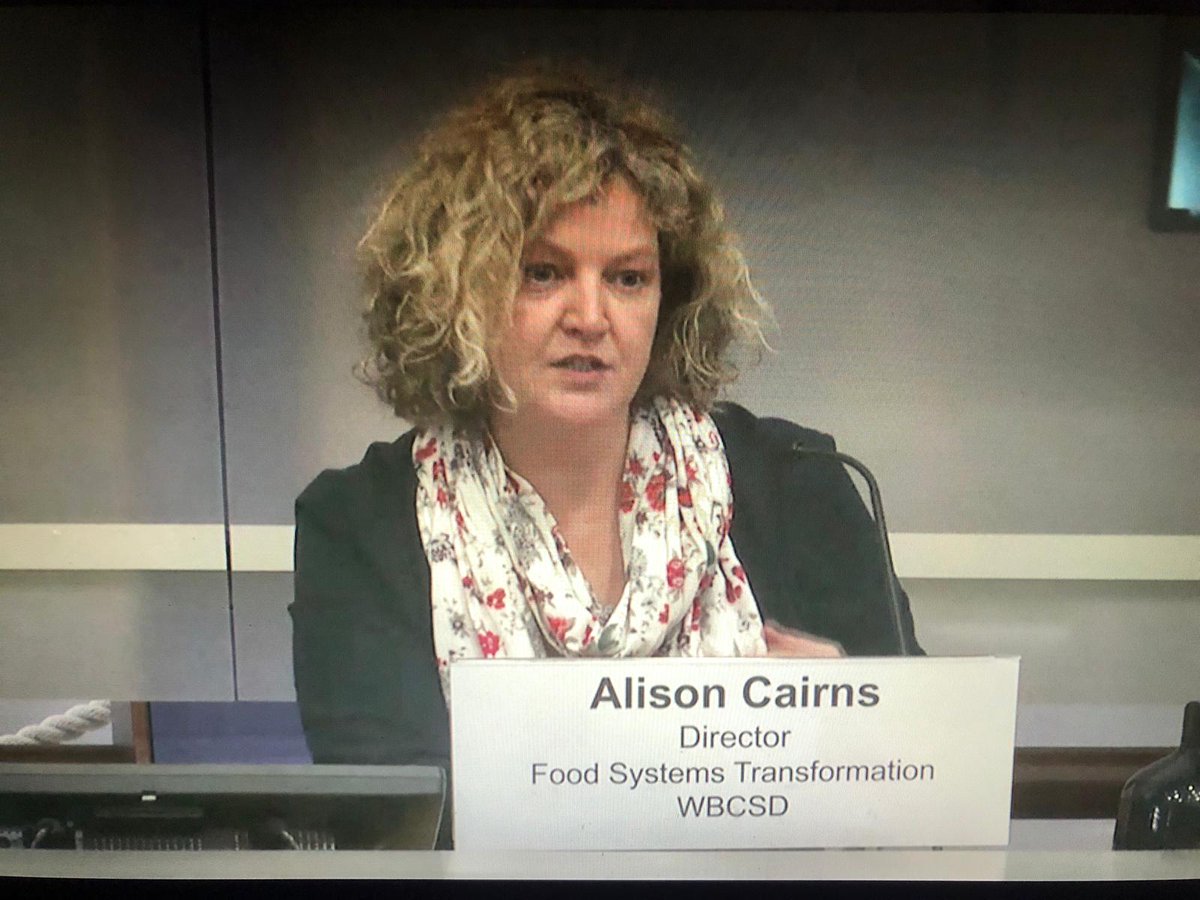

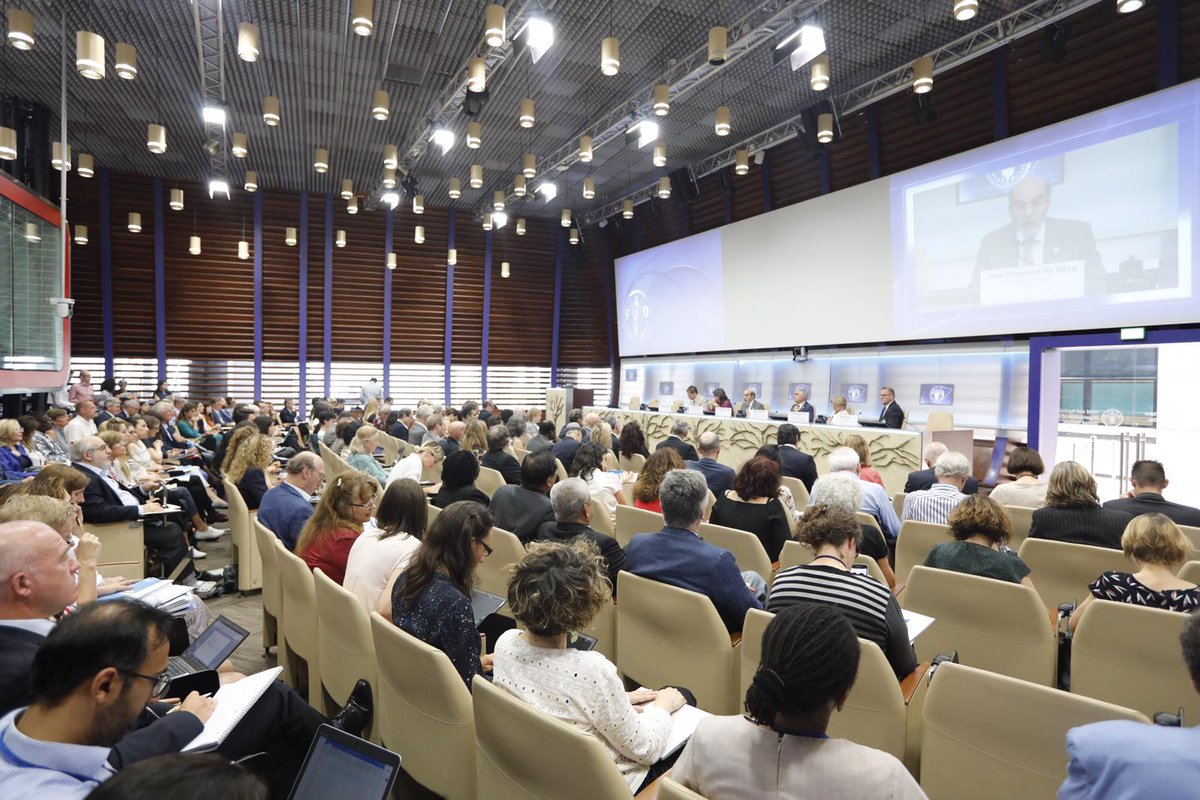


No comments:
Post a Comment